Covered from head to toe and driven by male guardians, Saudi women voted on Saturday for the first time, in a tentative step towards easing sex discrimination in the ultra-conservative Islamic kingdom.
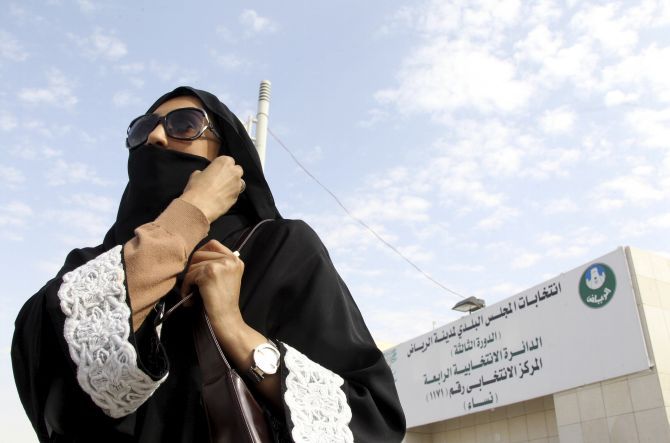
In another first, women were allowed to stand as candidates in the polls for municipal councils, the country's only elected public chambers.
"Now women have a voice," Awatef Marzooq told the media after casting her ballot at a school in the capital.
"I cried. This is something that we only used to see on television taking place in other countries."
Despite the novel presence of female contenders, Marzooq said she picked a male candidate because of his ideas including more nurseries.
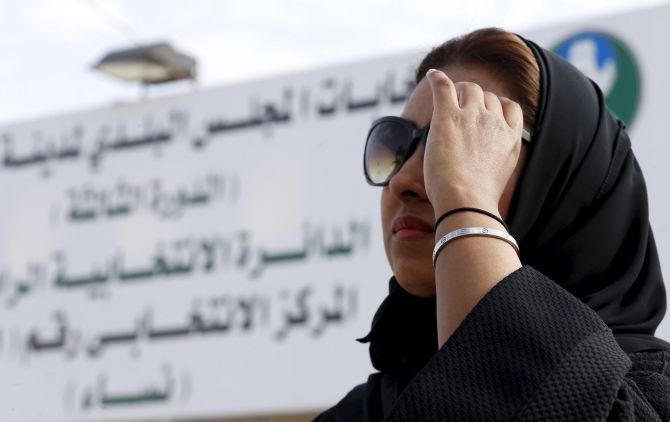
"I voted for a man, but I hope a woman will win," she said.
Saudi Arabia is an absolute monarchy with some of the world's tightest restrictions on women, including a ban on driving.
It was the last country to allow only men to vote, and polling stations were segregated.
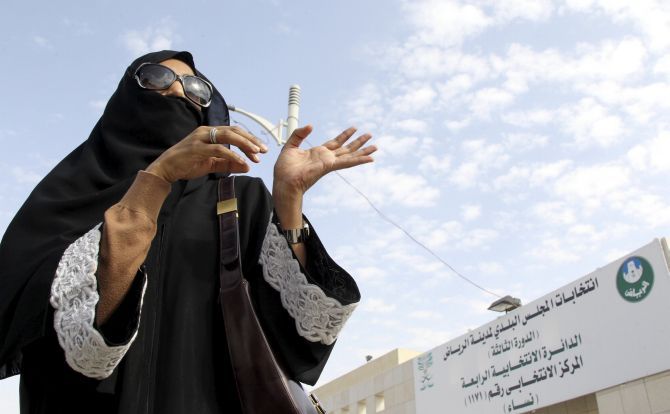
Outside one centre for women in Riyadh, cars driven by men arrived every few minutes with female voters dressed in black robes.
Some of the women asked the media not to take their photograph before they were whisked away.
Mohammed al-Shammari, who had just dropped off his daughter, a teacher, said he had encouraged her to vote.
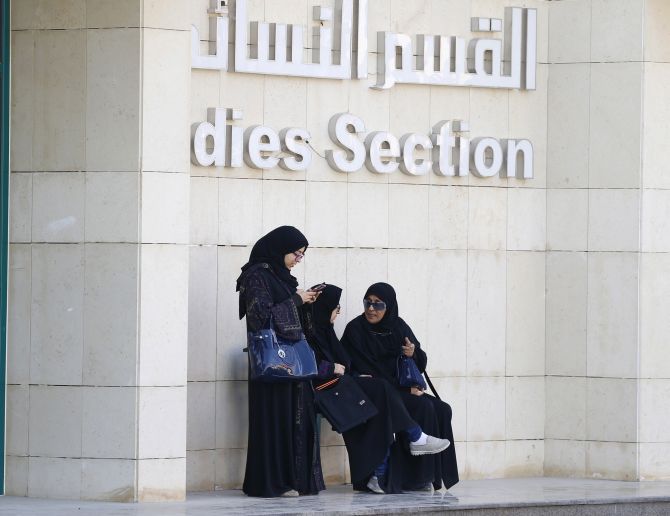
"We want to break this barrier," he said.
"As long as she has her own place and there is no mixing with men, what prevents her from voting? We support anything that does not violate sharia (Islamic law)," he said.
Among the 6,440 candidates are more than 900 women, who overcame a number of obstacles to participate in the landmark poll.
Female candidates could not directly meet any male voters during their campaigns.
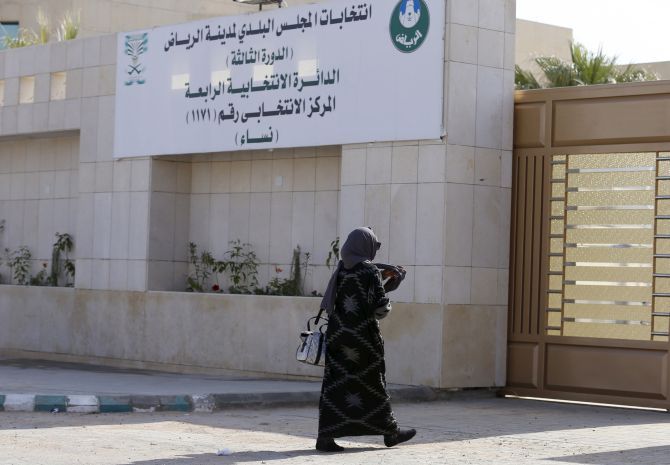
"This is really silly," said Sahar Hassan Nasief, a women's rights activist in the Red Sea city of Jeddah.
She said men and women were already mixing to a degree in the workplace, supermarkets and other locations, although restaurants, banks and other public places include separate sections for "families" and single men.
Nasief said the election campaign was "not really" fair because of the segregation and a rule against any candidates publishing their own picture.
But it "felt really good" to vote.
Female voters said registration was hindered by factors including bureaucratic obstacles and a lack of transport.
As a result, women account for less than 10 per cent of registered voters and few, if any, female candidates are expected to be elected when results are announced on Sunday.











 © 2025
© 2025